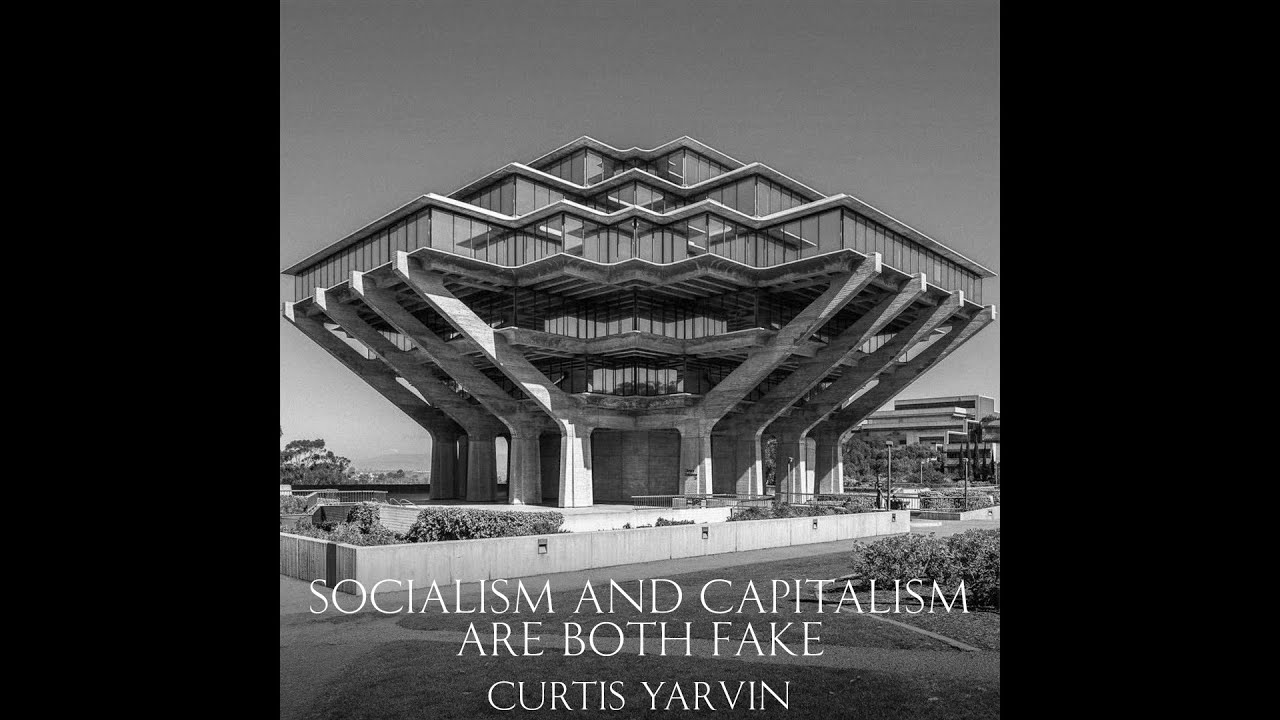The author sets a definition for “socialism” and “capitalism” and then shows that both are fake, do not exist today. It is a rhetorical “trick” but nonetheless the observations made are insightful.
Very crude summary: 1 - Socialism does not exist today, what we do have is a system of patronage where lower classes sell their vote to a particular elite, not benefiting lower classes that much in the process. System of dependency.
2 - Capitalism does not exist today. Capital markets are not free, and with fiat money what we have is a massive regressive tax, a transfer of wealth from people without assets to people with assets (stocks, real estate).
3 - The author gives a back of envelope solution to this mess, in a hypothetical world without transition costs.
Entertaining throughout especially if you enjoy the flowery language.
In our circles number 2 is almost canonical knowledge, and monero a big weapon to break this regressive tax. And monero could also break number 1, since it is much harder to confiscate property to redistribute among your clients under the patronage system.
Enjoy your Friday all!



Both socialism and capitalism are real. Socialism itself on the large scale is undesirable and impossible. It can be approximated on the small scale (say less than 20 people) in a very tight nit community (e.g. family or tribe) where there is strong social pressure and environmental pressures to pool resources and help each other, but the moment the community grows so large that you do not know and interact with every single person and do not have a strong bond with every single person, the community fractures into factions, with some factions dominating over other factions and eventually become the elites with special privileges ruling over the plebes which have privileges at the mercy of those in power.
Capitalism, OTOH is simply a system where there is a free exchange of capital which is anything of value. The main critique he has is that because there is no absolute free exchange change of independent value, there is no capitalism. This is the same mistake people who don’t believe in free will make. Yes, there is no absolute free will. I cannot will myself to be on the sun drinking ice tea with Socrates. But that’s not what free will in finite entities means. It means, given the limitations of your circumstances, you can make a choice. If someone paralyses you and puts you in a sensory deprivation tank, you can still have more free will than your captors since you can choose how you react to your circumstances.
Similarly, most hard assets depreciate in some sense. Rice is a classic store of value, but pests can get to it. Gold and silver wear out with time and their value changes dependant on availability and speculation. Fiat deflates. Properties depend on the ability of you to protect it and environmental factors. Yet all can be considered assets despite their imperfection. Similarly, all trade has restrictions. I can’t send some property in the Sahara to the Caribbean. I might transfer “the title” between people of these countries but I cannot guarantee that anyone accepts such transfer as legitimate. I can’t easily transport a large quantity of gold or silver or any commodity including fiat with there being a risk of confiscation by either thieves or governments. But to the extent that I can have and transfer value, there is capitalism.
All that you say makes sense. That is why I gave the heads up that the author is doing a “rhetorical trick” by defining “socialism” and “capitalism” in a certain way and then saying “look, these things don’t exist!”
The interesting side in my view was not how person A or person B defines “socialism” and “capitalism”, but rather the critique of our current times contained in the essay.
Ancient geeks argued a lot about “what is the right definition of X??”, missing the nuance that “definitions” are in the end just aids in transmitting information. They matter if you are trying to “box-in” your adversary in a debate, but they should matter much less if both sides are more interested in sharing their picture of the world and reaching common understanding about reality.